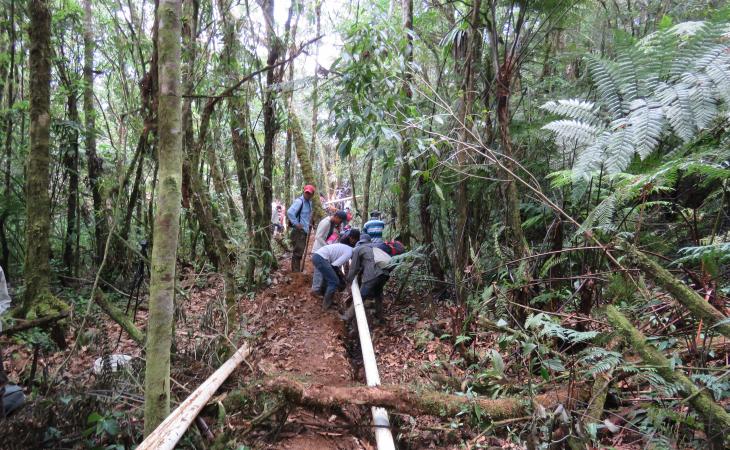This website uses cookies so that we can provide you with the best user experience possible. Cookie information is stored in your browser and performs functions such as recognising you when you return to our website and helping our team to understand which sections of the website you find most interesting and useful.
News
5 Reasons to Use PVC Pipe in Community Water Projects
A PVC pipe can save lives.
Right now, in Honduras, a team of engineers is getting set to work with residents in Belen Manazapa to build a PVC pipeline to bring clean, running water to this remote rural community. The project, which includes a new spring source, new tank, new chlorine disinfection unit, and a new PVC supply line and PVC distribution network will bring a new water system to 432 villagers in this remote community.
This means that 72 families will have running water for the first time.
Here are five reasons to use PVC pipe in community water projects:
1. PVC pipe is cost effective.
PVC provides great value for the money. This is important everywhere, but especially given the limited resources across much of Central America.
2. PVC pipe is easy to transport.
How do you get key resources (e.g., PVC pipe) to remote jungle locations with limited road access? Many of the water projects in Honduras require installing miles of pipeline through dense jungle. PVC pipe is lightweight and easy to carry, which helps when it’s being carried on the shoulders of volunteer community members. PVC is also tough, so it can withstand being accidentally dropped.
3. PVC pipe is easy to install.
Installing PVC pipe doesn’t require specialized equipment or outside contractors. This makes it a good choice for a project in which the work is being done by community volunteers without special training—or heavy equipment.
4. PVC pipe is durable.
When Honduran families chip in the equivalent of a quarter of their annual income for a community water project, they need to know their infrastructure will last for at least a generation. PVC pipe delivers. It stands up to acidic soils, water-saturated soils, minor ground movement, and shallow bury depths.
5. PVC pipe is sustainable.
PVC pipelines are simple and easy for local community members to maintain and repair. They’re also easy to tap, modify, and expand as a community grows. The enables communities to operate and maintain their own water system sustainably for decades, without outside help. In addition, because PVC is the industry standard for water lines, communities can always find the PVC parts they need locally.
The initiative in Belen Manazapa, Honduras, is being spearheaded by Water Engineers for the Americas, with support from the Vinyl Institute and the American Chemistry Council’s Chlorine Chemistry Division. This continues an industry-NGO partnership that began in 2004 and has already resulted in the installation of new PVC pipelines and lifesaving water purification and distribution systems in several rural communities in Honduras.


